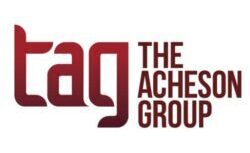
What you may have missed … and what they mean to you
With all the employee protection, food safety, and temporary closure challenges the food industry has faced during the COVID-19 pandemic, it can be difficult to also keep track of all the pandemic-related regulatory actions of the federal food agencies as well. To help keep you updated and in compliance, TAG has compiled the FDA and USDA food safety/coronavirus-related actions taken since the beginning of March. Following are the top actions taken during this time.
Inspections: Since early March, FDA postponed routine domestic and foreign inspections, issuing a temporary policy for onsite audit requirements. The initial announcement was the postponement of most foreign inspections with those deemed mission-critical still being considered on a case-by-case basis. Related to that, FDA then issued a temporary policy of not enforcing FSMA supplier verification onsite audit requirements if other appropriate supplier verification methods are used instead, and Remote FSVP Importer Inspections, primarily through electronic records review. The following day (March 18), FDA announced that “for the health and well-being of our staff and those who conduct inspections for the agency under contract at the state level, and because of industry concerns about visitors, we have temporarily postponed all domestic routine surveillance facility inspections.”
In April, FDA issued guidance on the Accredited Third-Party Certification Program, providing temporary flexibility so that recognized accreditation bodies (ABs) can maintain the accreditations of certification bodies (CBs), and so that already-issued certifications need not lapse, where certain safeguards are in place. With the inspection policies being temporary, FDA provided an update on May 11, stating that it would “continue to utilize and implement additional alternative inspection tools and approaches while postponing domestic and foreign routine surveillance inspections.”
What this means: The continuing postponement of inspections put the food safety onus fully on food facilities. While food producers have always held primary accountability, having another set of eyes on your operation often reveals things your team has overlooked. TAG’s recommendation is to increase your internal inspections and/or work with a consultant who can provide a desk-based and/or remote audit.
Supply Chain. In mid-March USDA and FDA developed a Memorandum of Understanding creating a process for the two agencies to enabling USDA to exercise its authority under the Defense Production Act (DPA) for certain domestic food resource facilities that manufacture, process, pack, holds grow or harvest food that fall within the FDA’s jurisdiction. FDA will continue to collaborate with state and local regulators, but further DPA action may be taken, if needed to ensure the continuity of the food supply.
FDA also temporarily loosened requirements for Retail and Restaurant Nutrition Labeling and Labeling for Formulation Changes and Vending Machines to help minimize the impact of supply chain disruptions on product availability associated with the pandemic. Similarly a guidance document was released temporarily enabling producers of shell eggs that normally would be sent to facilities for further processing the flexibility to sell their eggs for distribution to retail locations, such as supermarkets, with loosened requirements for Packaging and Labeling of Shell Eggs for Retail. And, most recently, it provided flexibility in Farm Eligibility for PSR Exemption allowing affected farmers to shift their sales away from foodservice to consumers while still being considered eligible for the qualified exemption as long as sales continued to average less than $500,000 (adjusted for inflation) per year during the previous three years.
What this means. By enabling food to be redirected directly to consumers, FDA was able to actively address disruptions in the supply chain and head off many shortages. Then by adding USDA enforcement authority through the DPA, it extended its resources to provide for the safety of these foods. This also means that an FDA-regulated facility could potentially get a call or visit from USDA.
USDA. Following the President’s Executive Order for Meat and Poultry Processors, U.S. Secretary of Agriculture Sonny Perdue issued letters to Governors across the nation and leadership of major meat processing company leaders directing meat and poultry processors to utilize the guidance issued by CDC and OSHA specific to the meat and poultry processing industry to implement practices and protocols for staying operational or resuming operations while safeguarding the health of the workers and the community. For meat and poultry processing plants that were closed without a clear timetable for near-term reopening, the letter directed them to submit to USDA written documentation of their protocol, developed based on the CDC/OSHA guidance, and resume operations as soon as they are able after implementing the CDC/OSHA guidance for the protection of workers.
What this means. Because the entire food industry is considered to be a critical infrastructure, it is critical that all operations – USDA and FDA – operate to their best ability while ensuring the safety of both their employees and their foods. (TAG has in-depth information on keeping your operation safe in its COVID-19 Toolkit. Contact us for information and access.)
Recommendations and Extensions. FDA also issued a number of recommendations through the pandemic, including best practices for retail safe food handling and employee health and re-opening of closed or partially closed retail food establishments, voluntary reporting of temporary closures or requesting assistance, and a joint recommendation with USDA for those experiencing shortages of PPE, cloth face coverings, disinfectants, and sanitation supplies.
The agencies also extended actions because of the pandemic, including that of FDA comment periods for the Third Installment of the IA Rule Draft Guidance, ,,General Principles for Food Standards Modernization, and the Laboratory Accreditation Program Proposed Rule. The agency also extended the VQIP Application Period. USDA extended ReConnect Application Deadlines and Loan Maturity for Marketing Assistance Loans.
What it all means. While the pandemic has shifted many priorities for the food industry, one area that must always maintain priority is that of food safety. Reduced inspections, regulatory leniency, supply chain leniency don’t equate to a laxness in the facility, but mean, instead, a shift to increased self-policing.
With all the changes and challenges for the food industry TAG remains fully committed and able to help our clients with both COVID-19 questions and the fundamental food safety issues. We have created both programs and the tools to undertake remote assessments with our clients using video technology. We would be happy to discuss any of these approaches to see how they can help you maintain your food safety programs with all the ongoing challenges.
About The Acheson Group (TAG)
Led by former FDA Associate Commissioner for Foods ,Dr. David Acheson, TAG is a food safety and public health consulting group that provides guidance and expertise worldwide for companies throughout the food supply chain. With the advent of the COVID-19 pandemic, TAG’s public health and infectious disease expertise has been brought to the forefront to assist food businesses weather the increased challenges of employee protection, food safety, and business continuity. With in-depth industry knowledge combined with real-world experience and advanced virtual technologies, TAG’s team of experts helps companies assess their unique situation, address gaps, and deploy best practices to more effectively mitigate risks, improve operational efficiencies, and protect their brand. ,www.AchesonGroup.com






